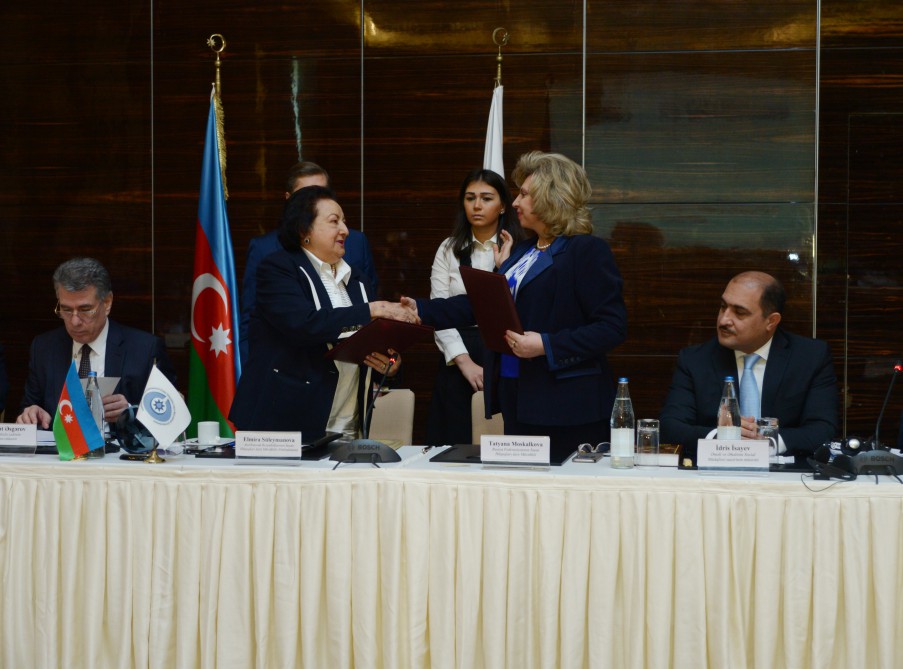Russia and Azerbaijan agreed Wednesday on bilateral cooperation in the field of human rights and multiculturalism. Azerbaijan’s human rights commissioner, Elmira Suleymanova and her Russian counterpart Tatyana Moskalkova, signed an agreement in conjunction with a a conference titled “Multiculturalism and Human Rights: Equality, Cooperation, Development” held in Baku, Azerbaijan’s capitol city.
In a nod to Azerbaijan's tradition of respect and protection of the nation's various religious denominations and ethnic minorities, Russian’s Moskalkova stated that Azerbaijan has achieved success in the field of human rights over the past 15 years.
“The progress in the field of human rights is apparent in Azerbaijan,” she said as part of her speech during the conference.
Azerbaijan’s Deputy Prime Minister Ali Hasanov, who also attended the event, said the Azerbaijani model of multiculturalism is studied throughout the world. Being the chair of the State Committee for Work with Refugees and IDPs, he further blamed some international organizations for attempts to keep frozen the long-lasting Nagorno-Karabakh conflict, which was started by Azerbaijan’s western neighbor, Armenia.
“Azerbaijan will never reconcile itself to the occupation of its territories. The conflict still remains unresolved despite the numerous resolutions adopted by international organizations,” said Ali Hasanov.
As a result of the bloody war, roughly 24% of Azerbaijan's territory is occupied, today, more than 20 years later, while about one million Azerbaijanis became refugees and IDPs. According to Hasanov, the Azerbaijani government spent 6.2 billion manats to address the long-term consequences of this war.







 Iran's senior military leaders described the drone and missile attack on Israel on April 14 night as “successful".
Iran's senior military leaders described the drone and missile attack on Israel on April 14 night as “successful".
 The number of evacuees from flooded areas in Kazakhstan has reached 97,852 people, including about 32,856 children since March 27.
The number of evacuees from flooded areas in Kazakhstan has reached 97,852 people, including about 32,856 children since March 27.
 Iranian President Ebrahim Raisi warned Israel that it would face a "real and extensive" response if it makes any "mistake" following Tehran’s missi...
Iranian President Ebrahim Raisi warned Israel that it would face a "real and extensive" response if it makes any "mistake" following Tehran’s missi...
 The Kazakh authorities have increased their arbitration claims against international oil companies involved in the development of the Kashagan oil ...
The Kazakh authorities have increased their arbitration claims against international oil companies involved in the development of the Kashagan oil ...



